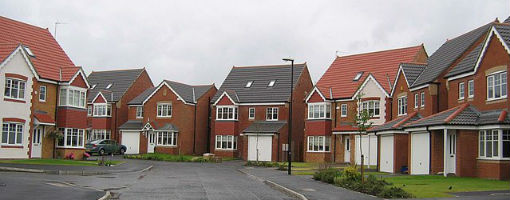The ‘golden age’ of investing in UK property is over and the view of property being a strong means of building wealth is outdated, Rathbones Group has stated.
The claim came following research conducted by the wealth and asset manager, which analysed the relative performance of equity investment and housing and concluded that the era of strong gains from the 1980s to the mid-2010s were over.
Assessing UK house prices since 2016, Rathbones found that residential property barely kept up with inflation at 3.7 per cent a year over the past nine years.
This downturn was even more evident in London, where buyers previously saw the largest gains, with house prices rising at just 1.3 per cent per annum.
While generations born in the 1950s and 1960s benefited from annual house price rises of 6.7 per cent between 1980 and 2016, later generations lacked the same opportunity to build wealth through housing.
Rathbones noted that stock markets have risen significantly faster than property prices since 2016.
It found that £100 invested in UK property in 2016 would have been with £134 in 2024, while £100 invested in an indicative portfolio of 25 per cent UK and 75 per cent international equities over the same period would have risen to £174.
“The idea that you can’t go wrong with bricks and mortar just isn’t true,” commented Rathbones head of asset allocation, Oliver Jones.
“The data shows that diversified global investment has put to shame returns from housing over the last decade – and we believe this trend will continue.
“The earlier boom in house prices was fuelled by factors which no longer hold. The huge decline in interest rates from their generational high in the early 1980s won’t be repeated.
“Homebuilding is rising after decades of very low rates. And government policy has become progressively less favourable to investors in residential property since the mid-2010s. The idea that money is safest in houses simply is not true anymore.”
While average house prices hovered around four times average annual earnings between 1910 and the late 1990s, this more than doubled after 2000.
Furthermore, after decades of low interest rates, recent volatility in financial markets and rising inflation have pushed mortgage interest rates up, further impacting affordability.
“We’re being asked by many people who own second properties and buy-to-lets whether the time has come to sell up and invest their money instead,” added Rathbones associate financial planning director, Ade Babatunde.
“This research should be a wake up call to anyone relying on property to support their financial ambitions, especially when thinking about retirement or succession planning.
“The old idea that property will always deliver is for the birds and we strongly recommend taking advice.”
Latest News
-
7IM merges Private Client business with Amicus Wealth to form wealth management firm
-
FCA opens targeted support authorisation gateway
-
J. Safra Sarasin completes acquisition of majority stake in Saxo Bank
-
Suttons IFA acquires Cheshire-based advice firm
-
Quilter Financial Planning adds six AP firms to advice network
-
HNWIs reshaping global investment priorities amid ‘structural shift’ in landscape
© 2019 Perspective Publishing Privacy & Cookies






Recent Stories